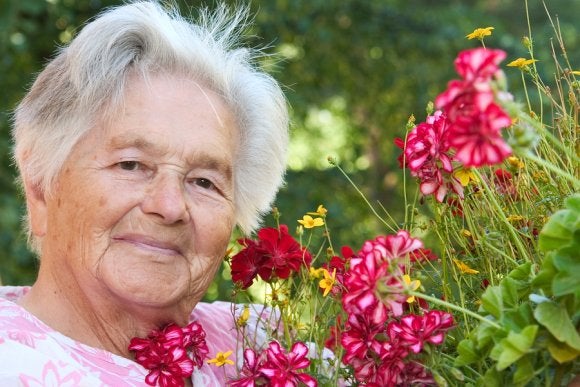-
Spotlight on Medication Management
Elderly care providers serving Memphis are often called upon to ensure an aging parent’s safety in addition to providing elderly care services like housekeeping. A caregiver that focuses on elderly care should be able to make sure your loved one is taking his or her medications properly, giving families peace of mind when they are away at work or on vacation.
To ensure proper medication management and timely reminders, make sure to tell your caregiver agency exactly what medications your parent is taking. You should know why it is being taken, who prescribed it, the exact dose, and how often it must be administered. You should also inform a senior care services provider about any potential side effects. For example, if your parent feels sleepy or nauseous after taking a certain medication, a caregiver can help him or her to bed to lie down. You may also want to come up with a system to make sure medications are being taken as directed. Some caretakers create daily checklists that are marked off when each dose is taken.

-
The Advantages of Respite Care
When an elderly loved one becomes ill or is recovering from surgery or a broken bone, families often take on the task of caring for elders in their home. After time, however, families may discover that they don’t have the time, skills, or resources to provide appropriate in-home care in Memphis for their loved one. In this situation, it’s useful to consult with a caregiver agency that offers respite care .
Respite care includes senior assisted living services that provide your elderly loved one with help with day-to-day tasks and chores around the home. This may include assistance with personal in-home care tasks such as bathing, dressing, and going to the bathroom. A home health aide can also provide your loved one with medication reminders, and transportation to and from doctor’s appointments or the pharmacy.
Caregivers also offer homecare assistance with meal preparation and household chores. A caring companion can do light housekeeping, laundry, dishes, and other tasks that your loved one isn’t able to complete himself. Most importantly, in-home assisted living caregivers provide support and companionship that prevents seniors from becoming depressed and lonely during their recovery.

-
Planning the Transition to Home Care
If a family member is transitioning to home care, it can be a very stressful time for everyone involved. Planning ahead of time with a facility that is specialized in home care health in Memphis can help to make this process and easier one.
It is important to remind your loved one that this transition is a new process and things are going to be different than
 they may be used to. Planning any changes to the home should begin immediately. Also, hiring a home health aide early on will be beneficial to ensure that recovery for the patient will continue at home. Reach out to the rehab facility to understand what is needed at home for the recovery to occur quickly and safely. Lastly, recognize that it is okay to have help when caring for a loved one. Self-care is necessary for everyone to stay healthy. Allowing someone to help you care for your family member is the best way to help everyone’s health.
they may be used to. Planning any changes to the home should begin immediately. Also, hiring a home health aide early on will be beneficial to ensure that recovery for the patient will continue at home. Reach out to the rehab facility to understand what is needed at home for the recovery to occur quickly and safely. Lastly, recognize that it is okay to have help when caring for a loved one. Self-care is necessary for everyone to stay healthy. Allowing someone to help you care for your family member is the best way to help everyone’s health. -
The Importance of Respite Care
When you’re tasked with taking care of a loved one, taking care of yourself is just as important of a job—and it can seem just as difficult to do. Caregivers often feel overwhelmed and guilty about taking time for themselves, but in reality, it’s impossible to provide the care you want to give if you aren’t at your best. Respite care near Memphis allows you to get the break you need while knowing that your loved one is still receiving the support he or she requires. Here is a look at why respite care is an essential part of being a caregiver.
Physical Health
Many caregivers find that they get sick more often than they did before they were in charge of providing care. It’s no surprise that this happens, since you’re more likely to miss out on sleep, healthy eating, and regular exercise when your loved one needs your attention. When your body doesn’t get the basic things it needs, like rest and nutrition, you become more vulnerable to infection. With respite care, a home health aide can take over care duties while you sleep, work out, or simply rest and let your body heal.Emotional Health
 Being a caregiver is rewarding, but it is also emotionally demanding. The less help you have with care, the more stressful your duties can become. In addition to the damage that long-term stress can do to you, you may find that you become inpatient with your loved one because of the pressure. Respite care gives you an important opportunity to focus on yourself and do things that bring you pleasure, such as engaging in favorite hobbies and spending time with friends, which can help to restore your emotional health.
Being a caregiver is rewarding, but it is also emotionally demanding. The less help you have with care, the more stressful your duties can become. In addition to the damage that long-term stress can do to you, you may find that you become inpatient with your loved one because of the pressure. Respite care gives you an important opportunity to focus on yourself and do things that bring you pleasure, such as engaging in favorite hobbies and spending time with friends, which can help to restore your emotional health.Personal Relationships
Because of the demands of your caregiving duties, you may have less time for important personal relationships. You can preserve these connections with the help of respite care. Use the opportunity to go out with your spouse, spend the day with your kids, or catch up with an old friend. -
Transitioning Your Loved Ones into Home Care
When a loved one is discharged from a hospital or other healthcare facility, it may seem as though the difficult part of recovery is behind him or her. This is often not the case, however. In fact, about two out of every 10 hospitalizations is a re-admittance after a prior discharge due to an improper transition back to the home environment. By carefully planning your loved one’s transition with the help of an agency for in-home care near Memphis , you can greatly facilitate his or her recovery. Seeking help from an in-home care agency can provide a safer environment in the home, and also ease the burden on family caregivers.
Planning Ahead
Planning ahead for your loved one’s care at home is critical. You can consult your loved one’s healthcare team to determine the type of support he or she may need. Many families underestimate the amount of care a loved one will need and overestimate their ability to provide it. Consider visiting an in-home care agency to arrange home care for your loved one. These services are available on a short-term and long-term basis.Modifying the Home Environment
Walk through your loved one’s home before he or she is discharged. After consulting with his or her healthcare/discharge team, you may determine that some modifications are necessary to ensure safety. For example, you may need to install grab bars/shower chair in the bathtub. If your loved one cannot yet manage stairs and the bedroom is on an upper level, you can rent a hospital bed to place downstairs. You may also need to have assistive devices and healthcare supplies in the home for your loved one, such as a walker, disposable gloves, and bedside potty. Following Discharge Instructions
Following Discharge Instructions
Once your loved one is discharged, a home health aide can assist with tasks such as meal preparation, housekeeping, ambulation, bathing, dressing, and toileting. After the family caregiver has filled all necessary prescriptions, a schedule can be arranged with your in-home care agency for medicine reminders. The family caregiver along with the discharge planner can determine and arrange necessary services at home, such as home health care, physical therapy or occupational therapy. -
End of Life Care Services from Caring Companions
 Toward the end of life, individuals often prefer to spend their days at home, surrounded by their loved ones, rather than in an institutional setting. Fortunately, with the proper planning, this is entirely possible. Caring Companions provides hospice care through our senior helpers in Memphis. Our caregivers are empathetic, spiritual individuals who are dedicated to guiding families through this difficult time. Our end of life care services can complement your loved one’s care plan through a hospice program or medical provider.
Toward the end of life, individuals often prefer to spend their days at home, surrounded by their loved ones, rather than in an institutional setting. Fortunately, with the proper planning, this is entirely possible. Caring Companions provides hospice care through our senior helpers in Memphis. Our caregivers are empathetic, spiritual individuals who are dedicated to guiding families through this difficult time. Our end of life care services can complement your loved one’s care plan through a hospice program or medical provider.Some of the care services we provide to individuals toward the end of life include food preparation, light housekeeping, including laundry, bathing, dressing, mobility assistance and medicine reminders. Individuals with a terminal illness often cannot perform self-care for themselves and it can be difficult for family members to assist with these tasks. Our compassionate caregivers can help your loved one with incontinence care, toileting, bathing, and dressing to help him or her maintain dignity.
